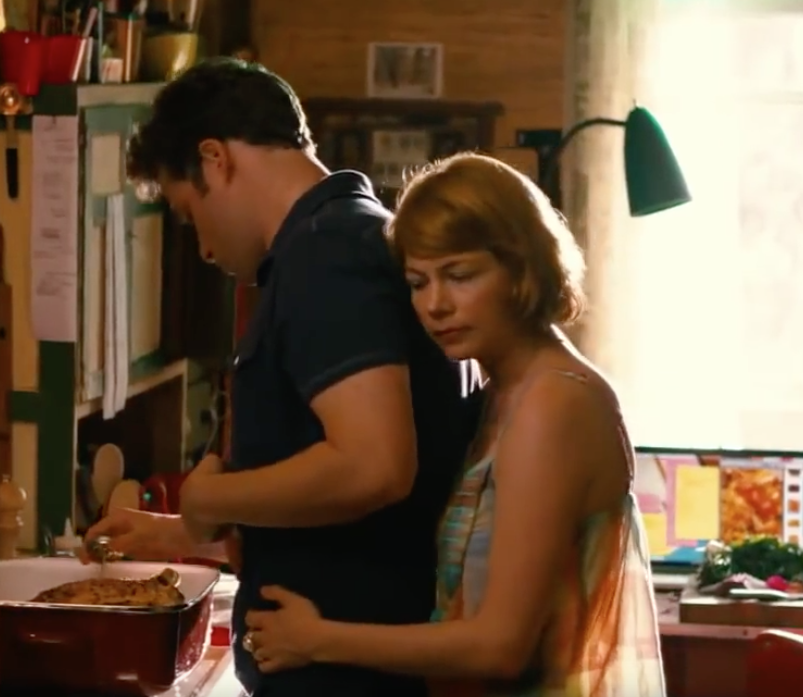Emotional human connection is arguably one of the most difficult aspects of a drama to believably pull off. When all is said and done, it requires at least a trifecta from the writer, director and actors. Sarah Polley and her leads achieved just this in Polley’s 2006 writing and directing debut, Away From Her, and while a work of nonfiction, her 2012 film Stories We Tell is nonetheless a masterpiece of improvisational documentary cinema. Given my unbridled appreciation for Polley’s work, I had high hopes for her second effort as writer and director, 2011’s Take This Waltz. Though it is still another showcase of Polley’s natural ability behind the camera, Take This Waltz is also Polley’s weakest work to date, and an instance of when a filmmaker overplays their hand with dramatic tension.
Set in the Little Portugal area of Toronto, the film centres of the story of freelance journalist Margot (Michelle Williams), a shy and timid woman who meets artist and rickshaw driver Daniel whilst on a trip, only to discover that he is her neighbour. The two make a relatively instant connection, and continue to regularly meet and bond, which raises conflicting emotions for Margot as she starts to rethink her marriage of five years to her husband Lou (Seth Rogen).
One of the greatest disappointments about Take This Waltz, for me, is the disengaging manner in which the film’s first half unfolds. On paper, I felt that the film’s premise offered great potential for a heartrending film, without the heavy-handedness that has weighed down one Will Smith vehicle too many. To the credit of Polley and her excellent cast (especially Williams, but more on her in a moment), the film avoids such pitfalls with some great moments of chemistry between Margot and Daniel, and the tragically believable love Lou has for his wife. It is only a shame that Polley’s plotting falters, falling into a pattern of rinse-wash-repeat.
By this, I refer to any film, and I am sure you have seen at least one, where the core narrative is drawn out by reusing its main source of tension in several scenes, while actually doing little to drive the story or its characters.
In this case, that main source of tension is the budding relationship between Daniel and the married Margot. While Margot is at her most captivatingly vulnerable when around Daniel, after a while the encounters feel like nothing more than a buildup to something you just know is going to happen, thus removing whatever tension was there before, and blunting the emotional impact of the second act’s close.
Thankfully, Margot at her most vulnerable is Williams at her most magnetic. While Polley’s direction of course deserves recognition, the performance given by Williams is in a class of its own. Though it is normally the powerhouse performance of the year that wins the awards, Williams’ performance is pitch-perfectly understated, minus any over-zealous Oscar-baiting. With a largely overlooked performance such as this, it is no wonder some consider the actress to be amongst the finest of her generation.
Polley’s debut, Away From Her, is a testament to her brilliance as a screenwriter, in that she was able to revisit a similar scenario numerous times, and still manage to develop the story and her characters with heartbreaking nuances. Sadly the same cannot be said for her follow-up Take This Waltz, but that’s okay. Polley is still an immense talent, as her seemingly perpetual ability to realise raw emotional cinema, without over-bearing sentimentality, is still on full display here, hindered only by certain narrative flaws I find hard to overlook.






